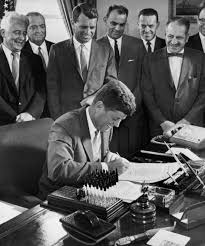A Group as we know is a collection of people known to each other and working towards a defined, common goal.
Group Norms
Groups operate under their own sets of norms which are specific codes about how members should talk, dress and behave towards each other and outsiders. Indeed these norms are only informally set – no one issues orders to bring members in line. Instead simple comments like “What a terrible dress she is wearing” or “That guy deserved a put-down for speaking out” can lead an individual to modify personal opinions and standards – leading him/her to follow group norms.

Groupthink
Sometimes group members follow group norms so closely and going along with others becomes so important that there is no space for disagreement. This can significantly impact group performance since members consciously or sub-consciously go along with dominant decision-making even though it might be faulty, unethical and contrary to deeper personal opinion. Psychologists have termed this group think and identified 3 characteristics:
- High conformity – pressure to conform by dominant members or group leader leads to an illusion that everyone conforms to group decisions
- Self-delusion – the faulty thinking that the group is right – irrespective of factual and ethical issues; it is usual when the group is insulated from outside information.
- Feelings of invulnerability – groupthinking is common in close-knit circles in positions of power – like presidential advisers or royal court.

In 1972, psychologist Irving Janis illustrated the concept of groupthink in a study of how US President J F Kennedy and his advisers embarked on the ill-planned and ill-fated 1961 Bay of Pigs invasion in Cuba. Janis pointed out the decision was the result of group-thinking and was marked by all 3 traits. For example President Kennedy had just won the election against all odds and the group felt his decision to be invulnerable. Delusion of power prevented the group to deal with internal questions that was raised by one among them – Arthur Schlesinger who pointed out it was unethical to invade a small neighbour like Cuba. And finally just because the President along with powerful CIA pushed for the invasion, it appeared that everyone was agreeing to it.
In this way group thinking can have long term consequences on group’s decisions and performance.